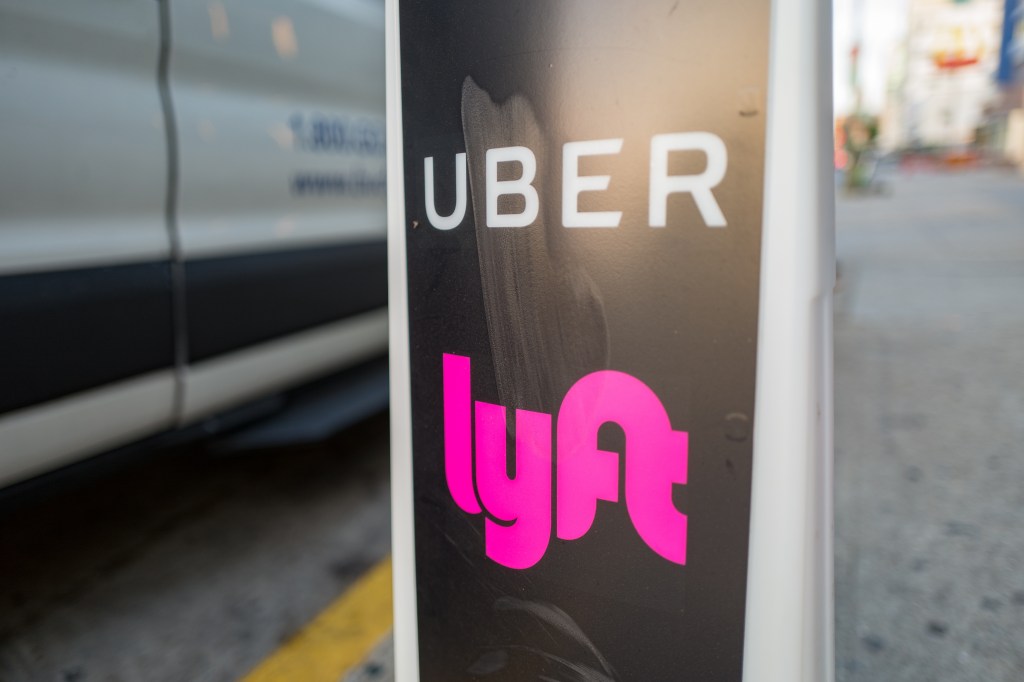It took the majority of a year for Alison Turkos to piece together the details of a night in 2017 that she ordered a Lyft to her home in Brooklyn. The ride from a birthday party at a Crown Heights bar to Turkos’s apartment a few neighborhoods over should have taken 15 minutes and cost less than $20.
But Turkos opened the app in the morning to discover Lyft had charged her $106.80 and she had been in the vehicle for 79 minutes. She was driven through Manhattan and across the Holland Tunnel to an isolated park in New Jersey before getting dropped off at her apartment in Brooklyn just before 4 am.
Videos by VICE
Turkos reached out to Lyft to report that she had been driven around for 79 minutes, but said she only received “robotic” responses. Though she initially only reported the long route, she knew something didn’t add up. Her body ached. She couldn’t lift her arms over her head or get out of bed, and was experiencing severe vaginal bleeding, according to a lawsuit she filed against the company Tuesday.
In the coming months, after receiving the results of a rape kit and participating in a police reenactment of the night, Turkos realized that she had been held at gunpoint by her Lyft driver and repeatedly raped by at least three men, as they cheered and high fived each other, according to court documents. The rape kit produced the semen of at least two men on her clothing and the case has since been transferred from the New York Police Department to the FBI as a sex-trafficking investigation.
When Turkos came forward with her story in the Wall Street Journal in May of this year, a Lyft representative called Turkos’s friend who had posted about the assault on Twitter, saying Turkos had not made them aware of the assault, according to a voicemail reviewed by Motherboard.
On Tuesday, Turkos and four other women filed sexual assault complaints against Lyft in San Francisco Superior Court.
“LYFT’s response to this sexual predator crisis amongst LYFT drivers has been appallingly inadequate,” the lawsuit stated. “These events have had a devastating effect on Plaintiff. The trauma of the kidnapping and rape caused and continues to cause excruciating pain and suffering and has had a catastrophic impact on ALISON’s life and well-being.”
At least 26 Lyft users have sued Lyft since August 1 for failing to protect them against sexual violence on the platform, and “stone walling” law enforcement from investigating cases. The women say Lyft ignored their pleas for help and does not inform passengers whether drivers who harm them remain on the app.
According to records reviewed by Motherboard, Turkos contacted Lyft within 24 hours of realizing something went wrong that night in 2017 to express her concern about the ride summary. She received a generic email from a Lyft support representative: “We apologize for the inconvenience that you’ve been through,” it said. They promised to “unpair” her from the driver and to reimburse her $93.99—the amount of the ride that did not include her trip home. Lyft’s explanation for the detour was simple: “the driver might have forgot to end the ride.” Turkos still had to pay $12.81.
In a follow up response to Turkos, a Lyft representative wrote, “It is my pleasure to provide the best support experience.” The representative pointed to several factors—poor network connectivity and outdated phone or Lyft software—could have produced this mistake. After that email, Turkos gave up communications with Lyft and went directly to the police. Turkos and her attorney claim that the driver remained on the app under a new name and profile.
“LYFT allowed LYFT DRIVER to continue driving after being on notice of the serious allegations being investigated, exhibiting a callous disregard for the safety of other passengers,” the lawsuit stated. “His well documented 79-minute detour from the intended route alone should have been grounds enough to terminate him as a driver. Putting profits ahead of passenger safety, LYFT chose not to do so and continued to employ LYFT DRIVER as a driver.”
Lyft has responded to recent lawsuits by rolling out new safety features, including, most recently, an in-app 911 panic button, continuous DMV screening for drivers, and a “smart ride” feature that will contact drivers and passengers when it detects unexpected delays.
Lyft drivers too have voiced concerns that the app does not appropriately respond to or investigate reports of harassment and assault from passengers, sending out generic responses and taking days to respond.
While most women from the recent spate of Lyft lawsuits have filed their complaints anonymously, Turkos says she wants to make her story public so she can fight to hold the company accountable. “I am not remaining anonymous. I want to shine a light on Lyft,” she told Motherboard.
“Lyft is systematically erasing our trauma and erasing me as a victim. It is not easy to talk about this when you’re going after a multi billion dollar tech company,” she said. “The thing I really struggle with is that their response has consistently been absolutely abhorrent to victims.”
“What this rider describes is awful, and something no one should have to endure,” a Lyft spokesperson told Motherboard. “The unfortunate fact remains that one in six women will face some form of sexual violence in their lives — behavior that’s unacceptable for our society and on our platform. In this case, the driver passed the New York City TLC’s background check and was permitted to drive. We constantly work to improve the platform, which is why we have invested in new features, protocols and policies to protect our riders and drivers. This year alone we’ve launched 14 new safety features—including daily continuous background check monitoring, in-app emergency assistance, and mandatory feedback for any ride rated less than four stars.”




